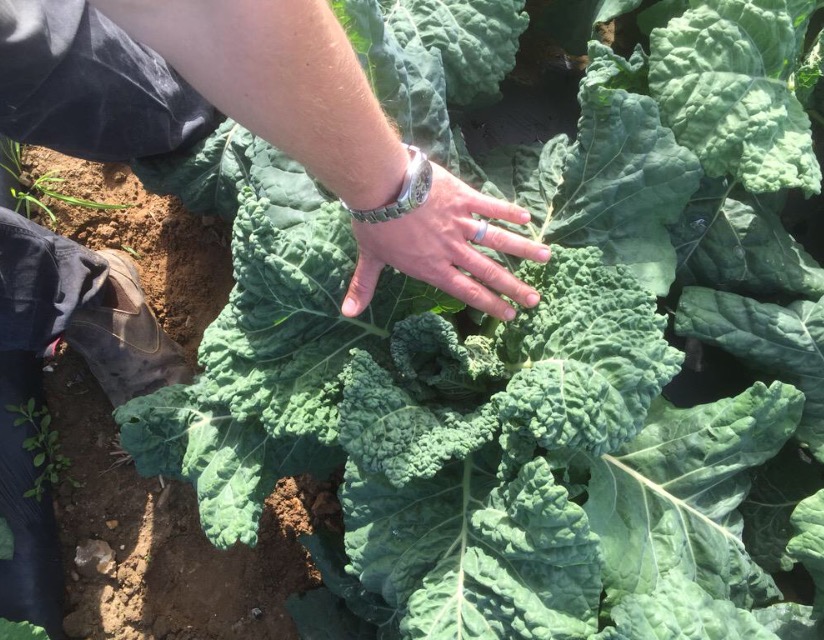Organic Farming
Organic farming is a whole system (or holistic) way of producing food.
This means that organic farmers think about the effects of their farming practices on the soil, crops and livestock on the farm, the quality of the food they produce, the local community and the wider environment.
Organic farmers manage the land in ways that work with natural systems rather than trying to dominate or change them. For example, organic farmers use predatory invertebrates to help control pests instead of using man-made pesticides.
The word ‘organic’ is a legal term. In the UK, all organic farmers, growers and processors must register with one of the organic certification bodies which inspect them at least once a year.
The principles and practices of organic farming are developed from six key principles:
- A closed system
Organic farmers aim, as far as possible, for a closed system. External inputs and waste outputs are at a minimum, so recycling is important and manure from livestock is a resource. Long-term rotations are used to ensure that pest and disease life-cycles are kept to a minimum and soil is given a chance to recover. Having a good range and balance of crops is key, as is livestock to produce fertility.
- Soil fertility and structure
Soil is one of the most important resources. Organic farmers aim to maintain the long-term fertility of the soil. Biologically active soil will decompose organic matter faster, so bacteria, fungi and earthworms are encouraged. When soil organisms decompose organic matter, nutrients essential for plant growth are recycled back into the soil to ‘feed’ the next crop. Farmers must also protect soil structure. For air, water and nutrients to reach and be absorbed by plant roots, they need pores in the soil.
- Pollution and the use of fossil fuels
Avoidance of polluting both farm and the wider environment is a priority. As well as waste management and good farming practices, usage of fossil fuel in food production is kept to an absolute minimum. Burning fossil fuel to release energy releases gasses that add to global climate change and the extraction of fossil fuels can cause widespread environmental destruction.
Between 4 and 6 tonnes of crude oil is needed to make one tonne of man-made fertiliser. Organic farmers do not use it.
Manure produced by farm livestock can be very polluting, so organic farmers use it as a natural fertiliser on grassland fields but only in spring or summer as it will decompose quickly then and help plants to grow.
- Food quality
Due to the less intensive nature of Organic food production and the fact it is given more time to establish the flavour is enhanced. For example, in Carrots the cell structure has more time to develop and produces more of the key sugars which leads to a beautiful tasting vegetable.
Organic meat will not have been routinely fed antibiotic residues and veterinary medicines; and organic crops seek to largely exclude synthetic pesticides.
- Appropriate technology
GM technology is not allowed in organic farming. Techniques include traditional rotations, as well as the latest machinery and scientific organic seed breeding techniques where two organisms can naturally breed and produce offspring. In recent times, some of the latest farming innovation techniques have been developed in Organic farming systems. Such as the use of camera guided weeding machines and the use of beneficial insect release to control pests (ladybirds, parasitic wasps etc).
- Animal welfare
Organic Standards are very strict. Organic livestock must have access to food and water, with outdoor grazing wherever possible. They must have plenty of space in fields and indoors in winter. If it is a herd animal, then they should be kept together and not isolated. These high welfare standards usually prevent organic livestock from becoming ill and stressed. Organic farmers are prohibited from routine use of veterinary medicines, but if an animal becomes sick then medicines can be used after seeing permission. Animal health and welfare is the priority.
Organic always means:
- Fewer pesticides
- No artificial Colours & preservatives
- The highest standards of animal welfare
- No routine use of antibiotics
- GM Free
What are the benefits of organic?
Organic means working with nature, not against it. It means higher levels of animal welfare, lower levels of pesticides, no manufactured herbicides or artificial fertilisers and more environmentally sustainable management of the land and natural environment – this means more wildlife!


